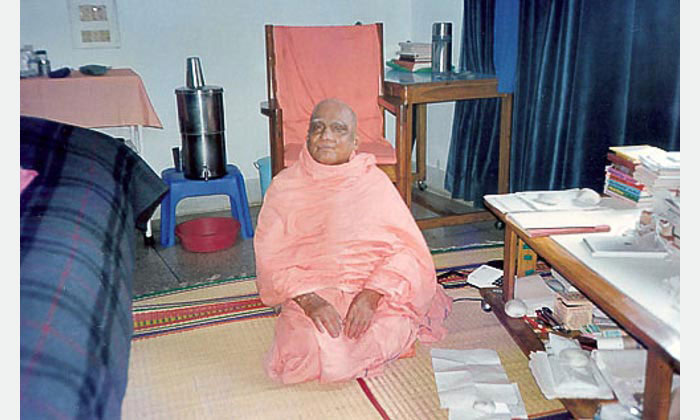Relevance of the Bhagavadgita to Humanity : 28-2. Swami Krishnananda.
=========================================================================
========================================================================
Wednesday, November 09, 2022. 08:30.
Chapter 28: Sitting for Meditation-2.
========================================================================
We do not behave part by part; we behave wholly. But this wholeness which we seem to manifest in our daily behaviour and in our thought may be a very lukewarm wholeness or an intensified wholeness. In a very intense form of rage, a kind of wholeness rises into action. In intense affection beyond a normal measure there is a kind of intensity of wholeness rising into action. In utter starvation and greed for food where anything and everything looks very tasty, there is a total asking from the entire structure of the body. In deep sleep where we are sunk into total oblivion, our whole being is also involved. But in conscious life very rarely the intensity rises into high pitch, except under grave conditions of danger when life itself is at stake. When a lion is facing us in the jungle, or we tread on a cobra, and so on, then our whole life will rise up into action. But normally, though we seem to be a gestalt in a psychological sense, there is no partitioned behaviour or fragmented thinking. It is a kind of wholeness, no doubt. When I think in any way, the whole of me thinks, but this wholeness needs to be understood in the percentage of the intensity of its expression at any time. The hundred percent total does not rise into action always. It may be one percent whole, two percent whole, three percent whole, etc.
The Bhagavadgita tells us in a coming slokam, śanaiḥ śanair uparamed (BG 6.25):
Gradually do you withdraw; systematically do you rise. Slowly you ascend, which means, let your wholeness of preparation in yoga be a graduated rising from an outward whole to an inward one, and from a lower one to a higher one.
Aikāgraṃ manaḥ kṛtvā:
concentrating the mind wholly and entirely. We have a difficulty in getting wholly engaged in yoga practice. We cannot wholly give our love to yoga, as we cannot wholly give our love to anything in the world. There is a reticence and a guardedness, and a little doubt, a kind of wary attitude of oneself even in our wholly giving ourselves up in unselfish behaviour or affection, or in dedication, in worship or even in a religious exercise such as meditation. There is a subtle ‘but' at the back of every undertaking of ours. That ‘but' is an unpreparedness of ourselves in the given measure of intensity.
The question may arise before us:
After all, having heard all this, having studied so much and understood well all that has been told, what am I supposed to do now? You have asked me to sit in a particular posture, and now you are asking me to think one thing. How long will I be able to think one thing, and what is that one thing?
As I mentioned, the Bhagavadgita has not much to say about the nature of this one thing, though we have to read between the lines and take the whole Gita as a single message as if we are in a position to grasp whatever is to come in future also in the coming chapters, and in this light of a capacity that we may exercise in our ability to appreciate the total message of the Gita, we may not have to raise this doubt in our minds as to what it is that we are expected to concentrate upon. It may be the whole creation, it may be God the Almighty or it may be any blessed thing, because when it is said that the mind should gradually rise, the idea seems to be that the lower manifestations, while they too can be taken as objects of meditation, should be clear as a presented picture before the mind. There should not be any kind of haze or twilight of perception even if the object chosen is a physical object. As hatha yogins and certain other circles of yoga practice tell us, concentration can be on anything that attracts you.
*****
To be continued
=========================================================================










Comments
Post a Comment